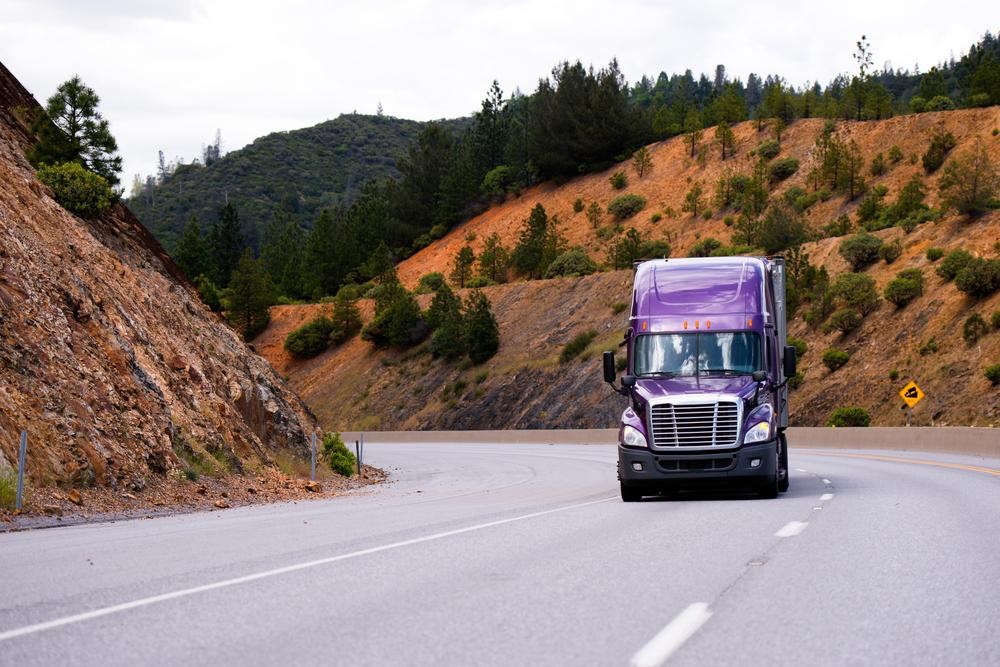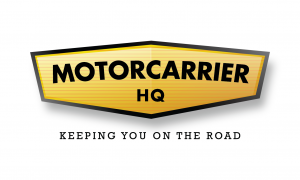January 4, 2022
What is an Owner Operator?

Being an owner-operator can be a freeing decision for veteran truck drivers who know their way around the business or those relatively new to the industry excited by the prospect of owning their own rig and building a business where you get to keep the profits. It’s a big step, and one you’ll want to make sure is practical for your current circumstances. Though it’s easy to idealize being one’s own boss, there are a few things to consider before diving into the world of small business ownership.
Here’s what you should know about becoming an owner-operator, what advantages and disadvantages it can bring, and five simple steps to get started on the path to owning your own trucking business:
What Does it Mean to Be an Owner Operator?
As the name suggests, becoming an owner operator goes beyond driving a truck provided by another company. Instead, a driver can establish their own independent business by acquiring their own truck (either via purchase or lease agreement). The responsibility of finding and delivering freight rests entirely on the owner operator, who is now considered a small business owner.
Like any industry, entrepreneurial-minded owner operators might venture out on their own for greater autonomy and control over their comings and goings, however, there are plenty of other advantages (and potential disadvantages) to consider.
How A Driver’s Job Changes When They Become An Owner Operator
When operating independently, the first item of business is to obtain a truck. That means all the associated costs of vehicle ownership including insurance, maintenance, and repairs are the owner operator’s sole responsibility.
In turn, the business is their own to run. Client agreements, routes, and the opportunity to collect greater profits are entirely in the owner operator’s court. For those disciplined enough to navigate their new role as a business owner, operating independently can greatly increase a driver’s annual earning potential.
Pros & Cons of Being Owner Operator
The advantages of being an owner operator are mainly rooted in a previously unobtainable measure of control over their own business decisions. The rates for each freight delivery are now theirs to determine, as is the amount of time spent on the road versus time off at home. Owner operators are now the decision-makers, able to earn as much as they’re willing to take on while staying free of potential layoffs or other company politics and abuses.
Of course, there are reasons not every company driver sets out on their own. Owner operators take on significant risks. As small business owners, they’re no longer under the protective umbrella of company benefits or solely responsible for hauling freight. Now they’re also the company’s CPA, HR specialist, mechanic, and CEO.
Gaining flexibility also means risking a regular paycheck since owner operators are responsible for finding their own freight jobs and ensuring payment when the job is complete. For those thinking it’s as simple as saving up for their own rig, it can be a surprising amount of new responsibility to shoulder.
Steps to Becoming an Owner Operator: An Overview
In order to become an owner operator, there are several steps to take before you’re ready to be out on the road. It can feel a little overwhelming, so here’s a quick overview of what you’ll need to do next.
1. Research the decision carefully
Understanding the full weight of responsibility owner operators takes on is key to finding success as an independent entity. There are plenty of freely-available online materials to use as educational tools before making the leap. The more prepared a driver is for the new business roles they’ll have to take on as small business owners, the more easily they can enjoy the advantages of the transition to owner operator. Especially at the start, truck drivers may find themselves with less time available to spend off-work or at home than before — so it’s important, to be honest with yourself about the amount of responsibility you can handle before taking the leap.
You can also listen to our podcast Haulin Assets, which has tons of free tips you can use to help manage your cashflow, hire good drivers, and find loads that actually make a profit. It’s free and we’re still releasing episodes, so make sure to subscribe for more trucking tips straight to your inbox.
2. Obtain a Commercial Driver’s License
Okay, maybe this one seems obvious, but there’s no getting past this point without it. For starters, earning a commercial driver’s license requires a DOT physical, as well as a whole litany of skill and knowledge tests to establish your competence behind the wheel of a truck. The DOT isn’t keen on letting just anyone transport a 40-ton truck on open highways.
If you don’t have a CDL, you may want to consider driving for another company for a while to gain experience. Sometimes it is best to learn from your mistakes on someone else’s dime and equipment. You’ll also get better insurance rates if you have a couple of years of driving experience with a CDL.
3. Save the necessary capital ready to kick off your new business
The day you purchase your own truck is a day worth celebrating, but be sure there’s still room in the budget for additional costs — taxes, registration fees, licenses, and endorsements will all set you back if you are caught off-guard by your new business’ expenditures. Insurance, maintenance, and your own health benefits will now also be your own responsibility. You’ll need all the tools of the trade (yes, including your own rig which is really the fun part) as well as the support the various branches of your new business needs to function — even if you’re its only employee for the time being.
4. Choose how your business will function
Now that you’re an owner, it’s time to decide what kind of operator you’ll be. This generally means determining whether you’ll lease your new vehicle to a company or operate it yourself, free of any other interference. The truly independent can elect to operate under their own authority and take on a full load of locating their own freight to haul, transporting freight to its destination, and arranging their own rates and maintenance. For many newer drivers, it’s a safer bet to lease their vehicle to a motor carrier — at least for a while — in order to get the hang of the business side of the industry.
5. Protect your business with the right coverage
There are all different types of damage and liability insurance to fit various budgets and circumstances. In addition to primary liability insurance, options like physical damage coverage and lease gap coverage may be worthwhile investments depending on the needs of your business.
Overall, the pros of being an owner operator can definitely outweigh the cons, as long as you’re prepared to be a business owner.
Want To Start a Trucking Company?
At Motor Carrier HQ, our coaches can help you every step of the way and get your trucking authority, file your Unified Carrier Registration, and provide the paperwork you need to pass your new entrant safety audit. Get in touch with our coaches to build a custom game plan for your new trucking company!




